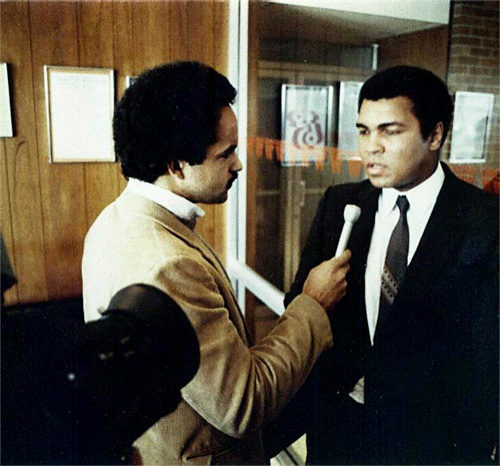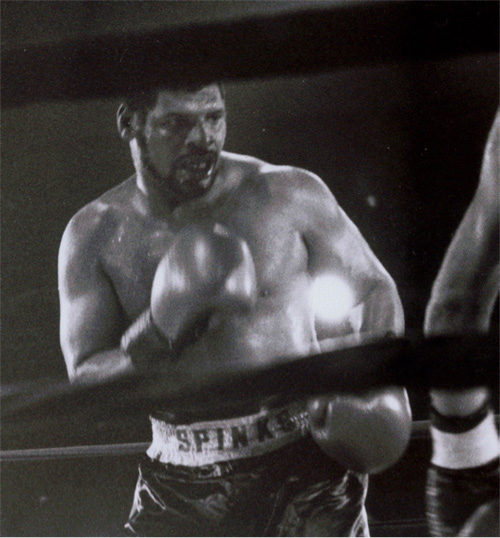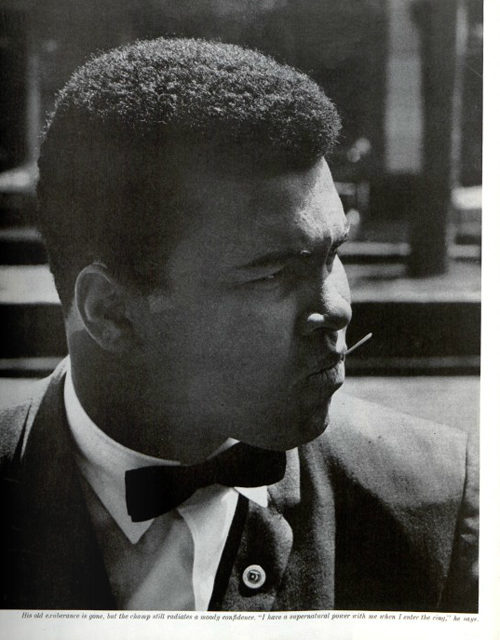40 Years Ago: The Greatest Wins One More Time
Leon Spinks stunned the world on February 15, 1978. The 1976 Olympic Gold medalist for Boxing, Spinks got the opportunity to face “The Greatest,” Muhammad Ali. Ali had just come off of a widely praised victory over Earnie Shavers, and chose Spinks as his opponent partially due to a desire to avoid Ken Norton, whom he’d already fought three times. Spinks amazed everyone by beating Ali in a split decision in only his eighth professional fight.
A number of factors led to Ali’s loss. He had already flirted with retirement in 1976 before returning the next year to beat Alfredo Evangelista. He was out of shape. And he underestimated his opponent. He wouldn’t make that mistake again. Ali got his chance for some payback when Spinks agreed to a rematch for the World Boxing Association heavyweight title in New Orleans on September 15, 1978.

Despite the fact that he’d lost in February, Ali was still considered the favorite. The wildly charismatic and controversial boxer had managed to delight and infuriate the American public throughout his career. When The Saturday Evening Post profiled him in 1964, one significant focus of the piece had been his conversion to Islam. At time of the Spinks fights, Ali had recently undergone an additional religious journey, turning from the Nation of Islam in 1975 and embracing Sunni Islam beliefs.
On the night of September 15, it was safe to say that the world was watching. ABC had the rights to the fight, and they broadcast it to an estimated 90 million people in the U.S. Around the world, the total audience for the bout was a record 2 billion people. Ali arrived in shape and ready to throw hands. Spinks found himself fighting a different Ali. The man he’d fought in February had been a bit sluggish; this Ali focused on footwork and jabs, locking up Spinks up whenever he came in too close (in fact, the referee stripped the fifth round from Ali in favor of Spinks because of Ali’s excessive holding).
The fight went the distance, and Ali won in a unanimous decision by the judges. It was his third WBA heavyweight championship, making him the first man to accomplish that feat. Ali sent an official letter to the WBA in June of 1979 to announce his retirement, but he ended up competing in two more fights. He would lose once to Larry Holmes in 1980, and again to Trevor Berbick in 1981. After that, he hung up his gloves for good. After Ali, only one other American boxer has had three WBA heavyweight reigns, fellow Olympian Evander Holyfield.

Spinks didn’t have a stellar career after the fight with Ali. He himself was beaten by Holmes in 1981, though Holmes would later drop the title to Leon’s brother, Michael Spinks, in 1985, making them the only brothers to be heavyweight champs. Leon Spinks tried to shed weight and box as a cruiserweight to little success. After that, he became a professional wrestler for Frontier Martial-Arts Wrestling in Japan; he took that the title in 1992, making him the only person to be both an American boxing and professional wrestling champion in his career. Leon and Michael Spinks, like Ali, have been inducted into the Nevada Boxing Hall of Fame. Leon’s son, Cory, was also a boxing champ in the welterweight and IBC junior middleweight divisions. Today, Leon Spinks lives in Las Vegas, Nevada.
As for Ali, his later years focused on humanitarian projects and philanthropy. Though he began to suffer from the effects of Parkinson’s Disease, he kept a high public profile. A Gold medal-winning Olympic boxer himself (he earned the Light Heavyweight medal in Rome in 1960), he was invited to light the Olympic flame at the Atlanta games in 1996. After years of declining health, Muhammad Ali died on June 3, 2016 at age 74, leaving behind the vibrant legacy of a larger-than-life personality that couldn’t help but set new standards in his sport.
